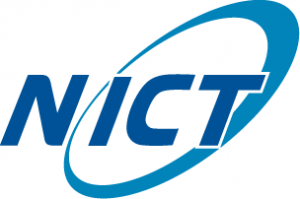M-Sec is a new project based on technology, but at the core of its mission is a very human ambition: the goal to improve the well-being of citizens living in smart cities.
M-Sec is a collaborative project between the EU and Japan, strengthening connections in the technological spheres of Big Data, IoT, Blockchain and Cloud computing.
Through its investment in new technologies, M-Sec aims to empower local and municipal governments, citizens, researchers, entrepreneurs and businesses between Japan and the EU to work together, create new connections and employ innovative new solutions to typical urban problems.
Running from July 2018 until June 2021, M-Sec is a result from a strong partnership of leading European and Japanese universities, research centers and tech companies. The M-Sec website is now available on www.msecproject.eu.
Which cities are involved?
The two cities at the heart of M-Sec are Fujisawa (Japan) and Santander (Spain). These two cities are already pioneers in smart city technologies and between them have already captured the attention of smart city enthusiasts. Having participated in numerous national and international projects, both cities have developed their own smart and unique responses to the everyday challenges faced in cities today: from traffic congestion, to cleaning graffiti, to combating loneliness in elderly populations.
However, with M-Sec, these two cities have the strength of new partners on the other side of the world and new infrastructures to learn from.
How will M-Sec work?
The project will focus on 6 use cases spread over 3 years, each one representing challenges faced by smart cities across the world.
- Healthcare for active and independent ageing people (Santander)
- Secure and Trustworthy Environment Sensing and Data Dissemination (Fujisawa)
- Supercharging smart city IoT devices with multi-layered security (Santander)
- Secure and Trustworthy Affective Hyper-connected Society Apps (Fujisawa)
- Governance and Citizens’ Citizen Engagement through citizens as sensor (Joint EU/JP cross-border)
- Playable city ‘ A marketplace of IoT devices and services to make the city more playable (Joint EU/JP cross-border)
From these 6 use cases, M-Sec will produce 4 main results over the longer term:
- M-Sec IoT infrastructure: Our trusted and robust M-Sec infrastructure will empower stakeholders to develop and operate new IoT applications for smart cities on top of smart objects.
- M-Sec marketplace: Our open market of applications, data and services will facilitate the exchange of value and information between IoT devices and people through virtual currencies.
- M-Sec smart city ecosystem: Startups, SMEs and developers will be connected and be given access to a complete set of tools, as well as the space to build and experiment with new ideas.
- M-Sec replication plan: The final impact of M-Sec will allow you to replicate the M-Sec approach in your city.
Stay connected to M-Sec by following us on social media:
Twitter: @MSecProject
LinkedIn: MSecProject
The M-Sec project is jointly funded by the European Union’s Horizon 2020 research and innovation programme (contract No 814917) and by the Commissioned Research of National Institute of Information and Communications Technology (NICT), JAPAN (contract No 19501).





